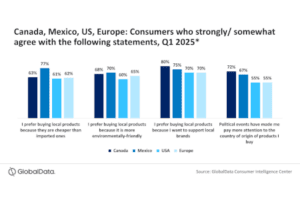According to a new market research report titled “Stevia Market by Type (Extract [Powder, Liquid], Leaves); Nature (Conventional, Organic); Components (Reb A, Reb M, Reb D, and Others), Application (Beverages, Food, Pharmaceuticals, and Other Applications), and Geography — Global Forecasts to 2028”, published by Meticulous Research, the stevia market is expected to grow at a CAGR of 8.8% from 2021–2028 to reach $1.11 billion by 2028. In terms of volume, the stevia market is expected to grow at a CAGR of 6.7% from 2021–2028 to reach 72,670.9 tonnes by 2028.
In recent years, low-calorie sweetened and organic products have been growing with the successive application of stevia in manufacturing products for daily purposes, such as food, beverages, cosmetics, pharmaceuticals, pet food, and others. The growing adoption of these low-calorie products boosts the stevia market. Also, the growth of this market is backed by the growing incidences of diabetes and obesity, the surging demand for natural sweeteners, the rising demand for stevia application in the beverage industry, and the increasing number of new stevia-based product launches.
However, fluctuating stevia leaf prices are expected to restrain the growth of this market to a notable extent.
The report can be found here: : https://www.meticulousresearch.com/product/stevia-market-5205
Impact of COVID-19 on the Stevia Market
To combat & control the spread of COVID-19, numerous countries worldwide declared emergencies and announced complete nationwide, statewide, or citywide lockdowns, halting all travel, transport, manufacturing, educational institutions, and non-essential trade, significantly impacting numerous industries globally, reducing manufacturing and distributions worldwide. The stevia industry is one of such industries where manufacturers faced disruptions in raw material supply due to the pandemic. Also, imports and exports in numerous countries were either restricted or delayed due to the outbreak, posing numerous challenges for stevia suppliers.
Manufacturers of consumer food & beverage products face challenges, such as significantly reduced consumption and disrupted supply chains. The food & beverage sector witnessed a minor decline due to the lockdowns imposed across various countries. In addition, government bodies passed various rules and regulations, allowing only the purchase of essential goods. This scenario negatively impacted the confectionery industry since people started purchasing only essential products, significantly lowering the consumption of confectionery items.
However, the COVID-19 pandemic led to the adoption of some best-practice models for the food industry as the pandemic led to increased awareness regarding the importance of hygienic and nutritious foods comprising reduced sugar, calories, and fats. This industry faced unprecedented demand from the consumer, particularly for low-calorie food products. Therefore, numerous companies in the food industry started changing their strategies by replacing sugar with natural sweeteners.
The stevia market witnessed a rapid uptick with the onset of the COVID-19 pandemic, as people started seeking solutions to boost overall health and wellbeing, resulting in a surge in demand for less sugary and immunity-boosting products. The COVID-19 pandemic also prompted most health-conscious customers to turn to low-calorie or sugar-free food.
Hence, increasing health consciousness and high demand for sugar-reducing solutions and organic foods among the global population have forced manufacturers and product formulators to opt for stevia.
According to an article published by Nutrition Outlook, dietary supplement sales increased during the pandemic as they helped prepare the immune system against COVID-19 infections. Additionally, during the last week of March 2020, the sales growth for overall dietary supplements skyrocketed to more than 35% in the U.S.
Thus, the growing health and wellness awareness, the strong demand for dietary supplements, and the increasing demand for sugar-free products are expected to propel the growth of the stevia market.
Surging Demand for Natural Sweeteners to Drive the Growth of Stevia Market
Natural sweeteners are prominent ingredients in food formulations to replace sugar content in foods. Stevia is among the most vital natural sweeteners applicable in all types of foods, mainly dairy, bakery, confectionery, beverages, and other functional foods. Stevia has a unique taste profile and sweetness intensity, which is approximately 200 to 350 times greater than regular sugar.
Increasing incidences of cardiovascular diseases, obesity, type 2 diabetes, and growing health consciousness have shifted a wide range of the population towards low-calorie and nutritional foods. It has increased the intake of natural ingredients. Thus, the increase in health consciousness has encouraged consumers to demand healthier food.
According to International Stevia Council, more than 100 countries worldwide have received approval for stevia, and products sweetened with stevia have been accessed by more than 4.5 billion consumers worldwide. Demand is driven by rising consumer demand for healthier and natural food products. Regulatory changes in the EU also stimulate demand for stevia in Europe.
The growth in the food and beverage industry in Europe drives the demand for natural sweeteners such as stevia. Natural sweeteners are increasingly used in place of sugar in food and beverage products. According to the 2020 New Nutrition Business Survey, two-thirds of European consumers are trying to lower their sugar intake. In addition, research has also found that European consumers are increasingly looking for products with no added sugars.
Thus, the rising demand for natural sweeteners is enhancing the growth of the stevia market, as natural sweeteners also comprise functional properties that help control blood sugar levels and obesity and mark their presence in organic and clean label products.
Stevia Market Overview
Based on type, the stevia market is segmented into leaves and extracts. The extracts segment is further segmented into stevia extract powder and stevia liquid extract. In 2021, the stevia extract powder segment accounted for the larger share of the overall stevia market. The large share of this segment is mainly attributed to its solubility, ease of handling, and lower chances of incompatibility compared to the liquid dosage form. However, the stevia liquid extract segment is expected to register a higher CAGR during the forecast period. The growth of this segment is attributed to its high yield, wide application as a tabletop sweetener, multifunctional properties, and lack of bitter after-taste.
Read more of the latest news and developments in our new edition here: February 2022 Single Issue form – International Confectionery Magazine (in-confectionery.com)
Media contact
Roshini Bains,
Editor, International Confectionery
Tel: +44 (0) 1622 823 922
Email: [email protected]








